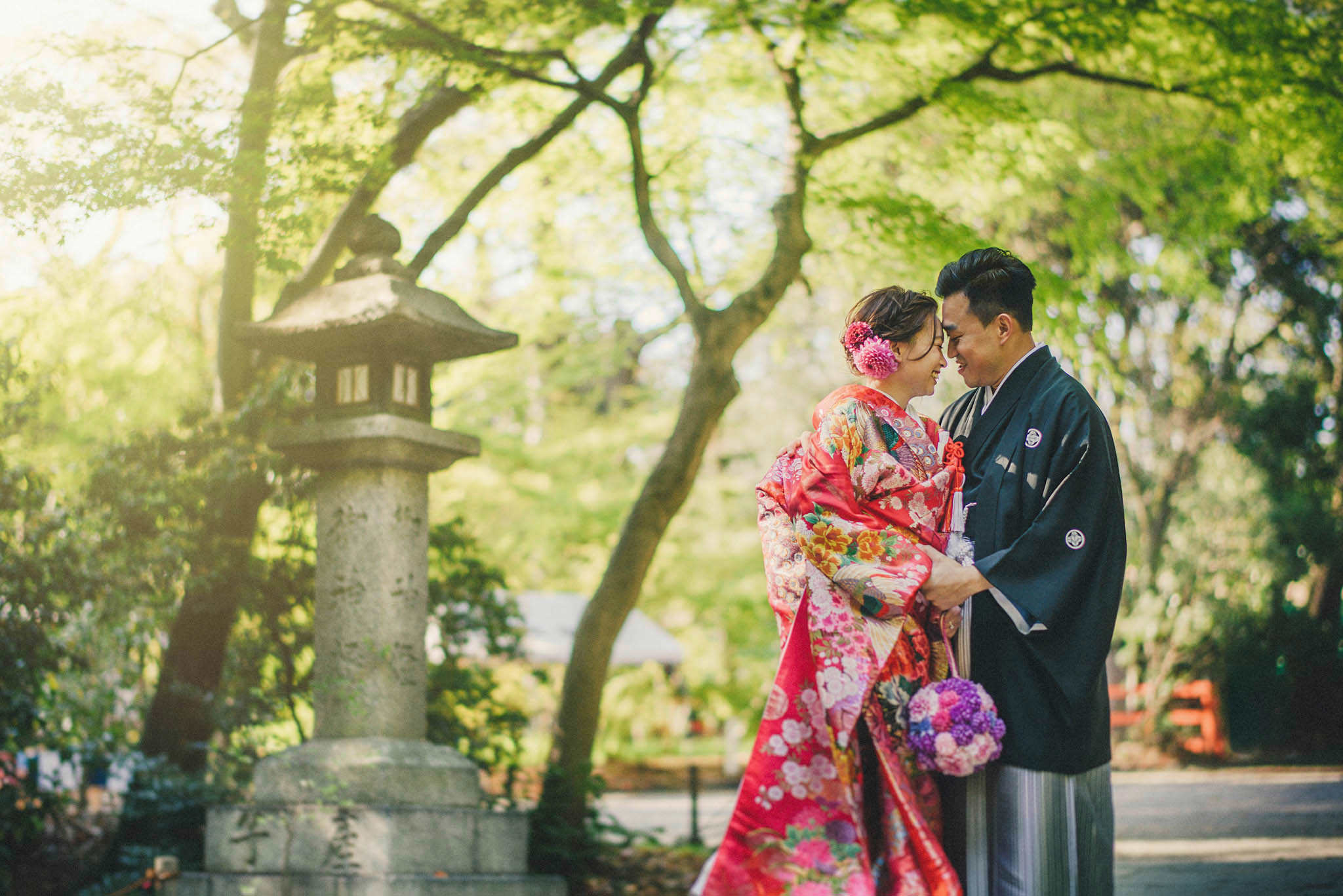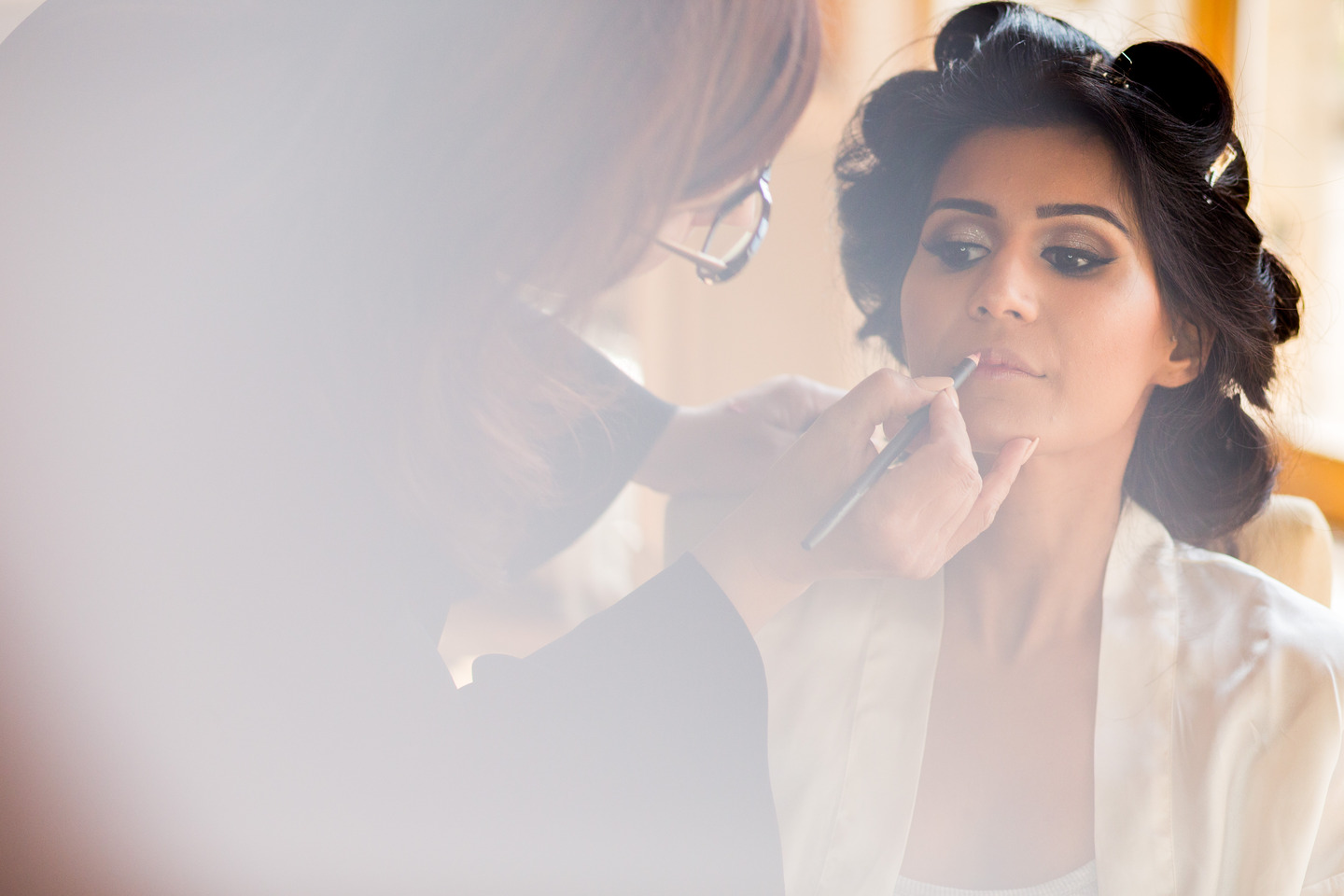Weddings are universal celebrations of love and commitment, but how they are observed can differ dramatically across cultures. While many of us might picture white gowns, towering cakes, and romantic first dances, these images are far from the only ways people around the world mark this important milestone. For centuries, communities have created unique rituals that reflect their histories, values, and social beliefs.
By exploring some of the more unusual wedding customs practised globally, we gain a glimpse into how different societies view marriage, family, and community. These rituals are not just about two people coming together but also about connecting with ancestry, paying homage to tradition, and ensuring blessings for the couple’s future. Each custom tells a story—sometimes humorous, sometimes poignant—that reveals the cultural essence of the people who perform them. Here, Khush travels across continents, stepping into ceremonies that might seem surprising to an outsider yet hold profound meaning to those who participate.
Armenia: Balancing bread on the couple’s shoulders

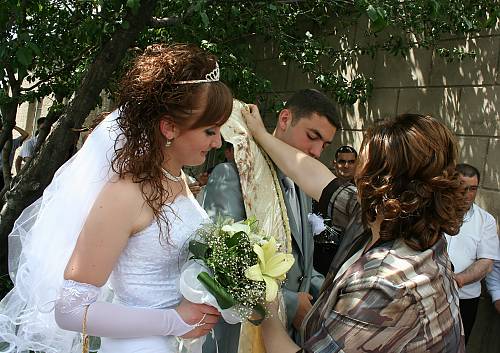
In Armenian weddings, every detail is carefully orchestrated to invite happiness, prosperity, and protection into the lives of the newlyweds. One of the most significant acts involves the mother of the groom presenting the couple with lavash, a traditional flatbread, along with honey. The bread represents sustenance and abundance, while the honey adds a literal and metaphorical sweetness to their union. The couple takes spoonfuls of honey as a symbolic gesture before balancing the ‘lavash’ on their shoulders. This delicate act is believed to shield them from malevolent spirits and misfortunes, binding them together in shared responsibility as they embark on their new journey.
Greece: Shaving the groom
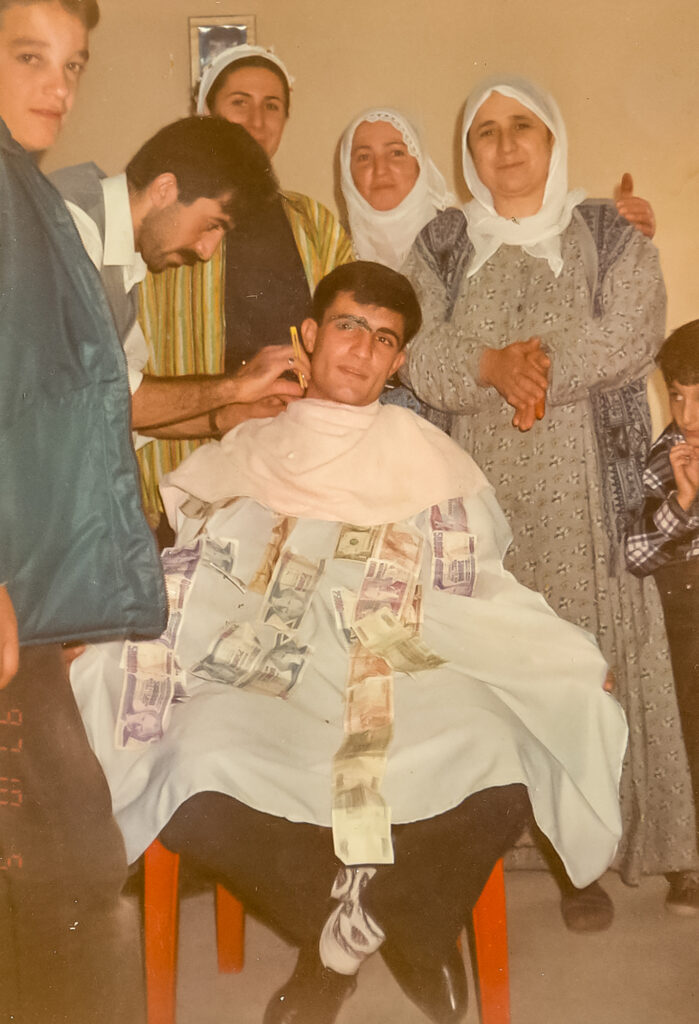
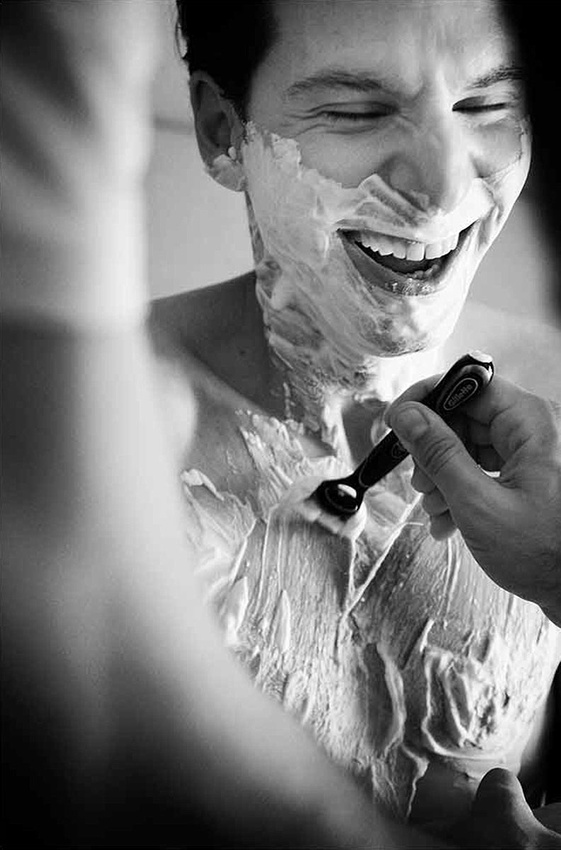
In Greece, the pre-wedding rituals are steeped in camaraderie and trust, and one of the most unique customs involves the groom’s best man, or ‘koumparos,’ taking on the role of a barber. Before the ceremony, the koumparos carefully shave the groom’s face, symbolising a clean slate and a fresh start as he enters married life. This act goes beyond simple grooming; it is a profound gesture of trust and loyalty between the two men, reflecting the close bond they share.
Japan: Wearing a White Tsunokakushi
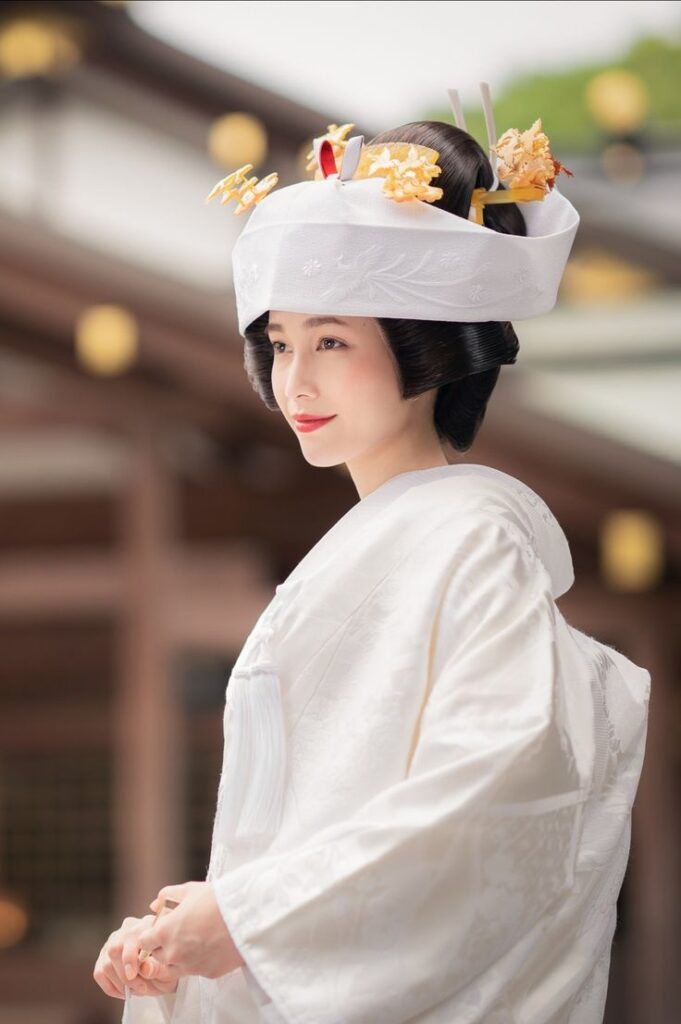
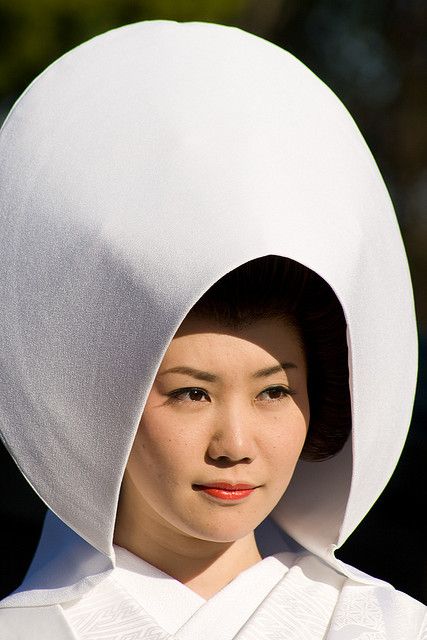
Japanese weddings, particularly those conducted in the Shinto tradition, are elegant ceremonies that emphasise purity, humility, and new beginnings. The bride’s attire plays a central role in these themes, with her white kimono and makeup symbolising her status as a maiden and her readiness to embrace a new chapter in her life. The tsunokakushi, a special hood worn over her head, serves a dual purpose: it conceals her “horns of jealousy” and represents her commitment to being a harmonious and respectful member of her new family.
India: Stealing the groom’s shoes
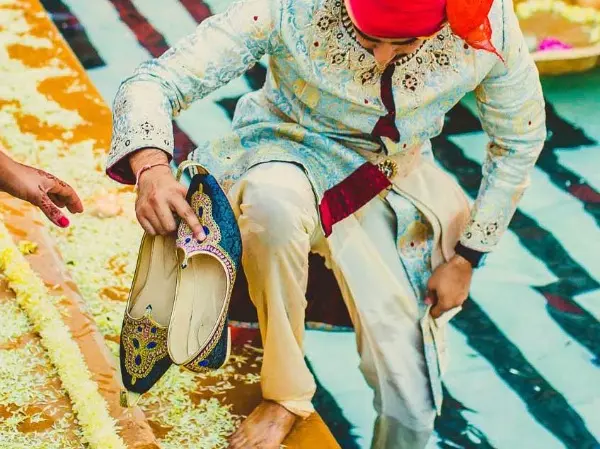
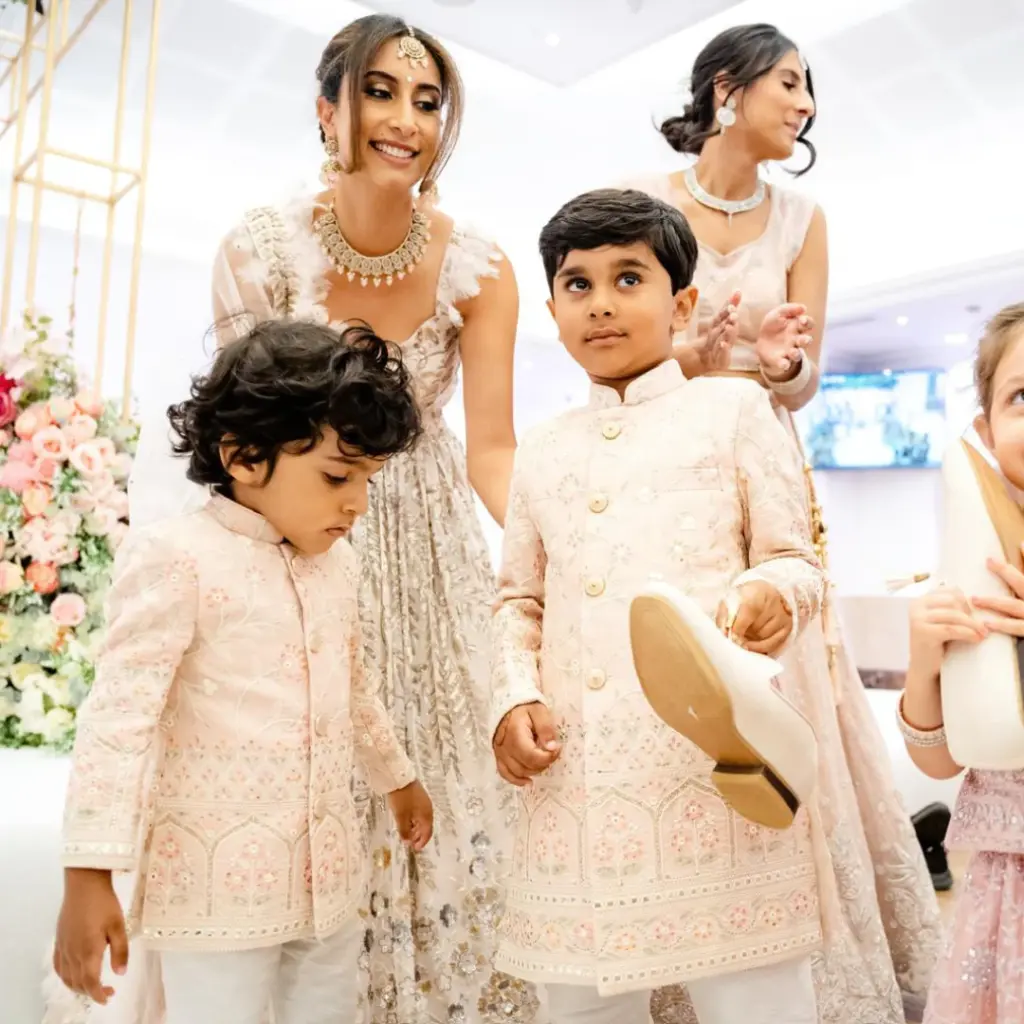
Indian weddings are known for their vibrant energy and playful customs, and one of the most beloved traditions is the “Joota Chupai,” or shoe-stealing ceremony. During the pheras—a sacred ritual where the couple circles a fire to solidify their vows—the groom is required to remove his shoes. At this point, the bride’s bridesmaids and cousins spring into action, plotting to steal and hide the shoes. This lighthearted game often involves elaborate schemes, negotiations, and a good dose of mischief. The groom’s side must then bargain or pay a “ransom” to retrieve the shoes, adding a humorous and lively element to the festivities.
Kenya: Spitting on the bride
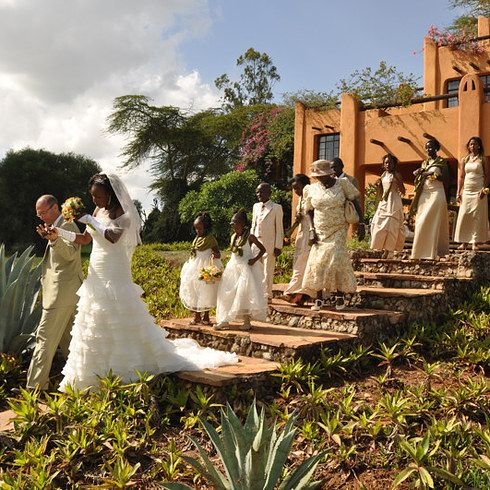
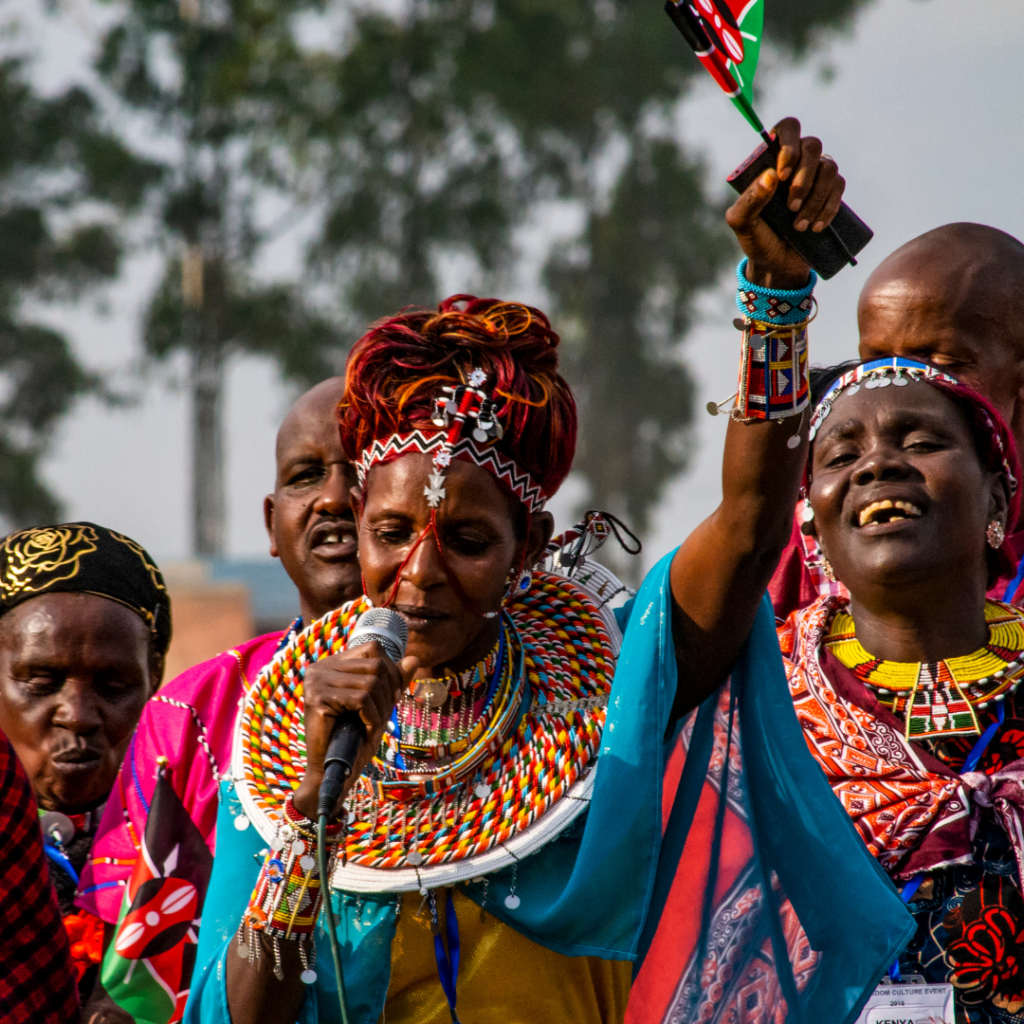
In Kenyan Maasai culture, weddings are deeply spiritual and community-centered events, marked by symbolic gestures that convey blessings and well wishes. One of the most striking traditions involves the father of the bride spitting on his daughter’s head and chest before she leaves with her new husband. While this act may seem unusual or even offensive to outsiders, within the Maasai community, spitting is a gesture of good fortune and respect. By performing this ritual, the father conveys his hopes for a prosperous marriage, sending his daughter off with the blessings of her lineage and ancestors.
Scotland: The blackening of the bride and groom
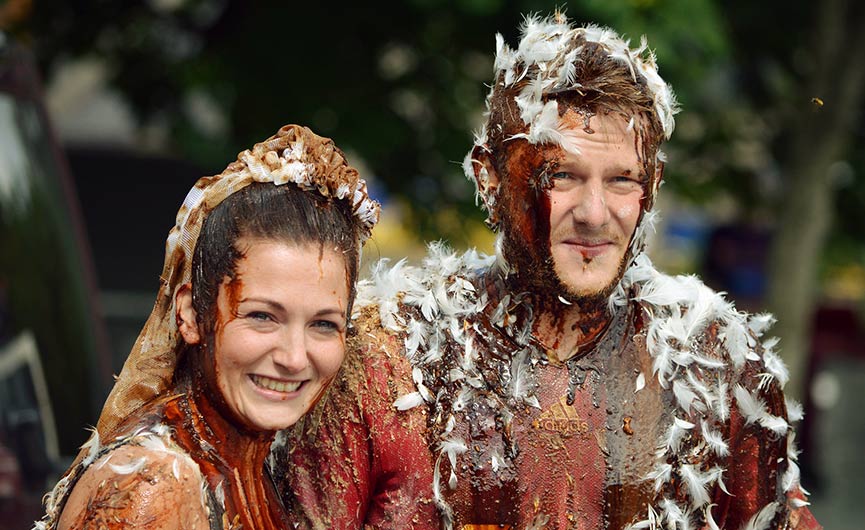
Scottish weddings are known for their rich traditions, but perhaps the messiest of them all is the “blackening” ritual. In this pre-wedding custom, the bride and groom are captured by friends and family, tied up, and doused with a concoction of foul substances such as molasses, feathers, soot, or rotten food. While it may sound like an ordeal, the ritual is carried out in good spirits and represents the couple’s ability to withstand challenges together.
Fiji: Presenting a Whale’s tooth

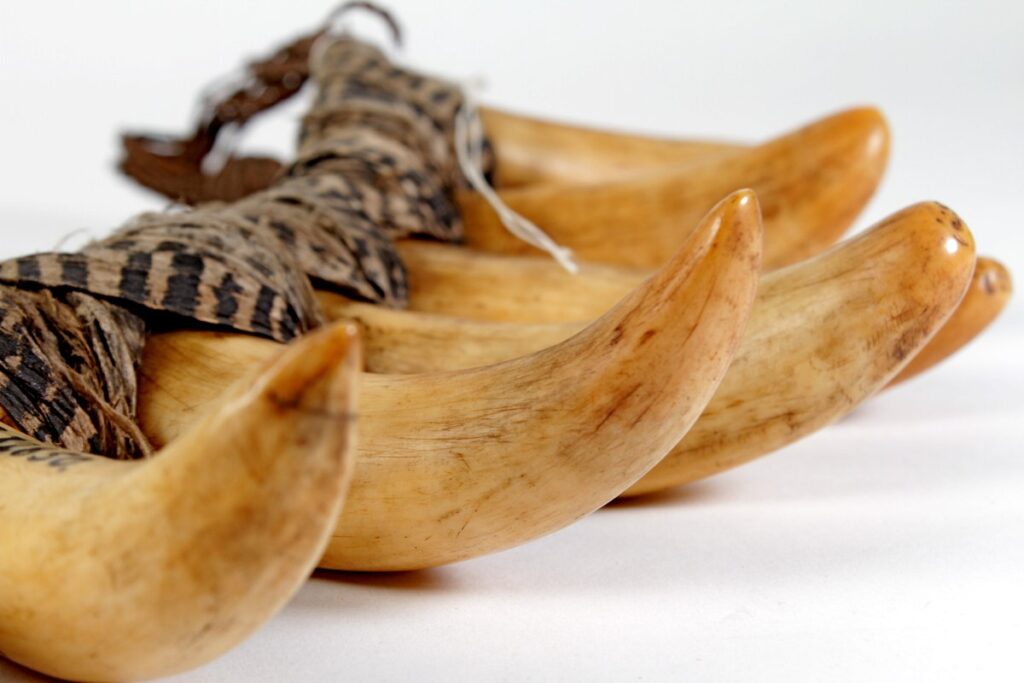
In Fiji, marriage proposals are elevated to a grand level with the presentation of a tabua, or whale’s tooth, to the bride’s family. This practice holds profound cultural significance, as the whale’s tooth is considered one of the most valuable and sacred items in Fijian society. Offering a tabua symbolises the groom’s deep respect and commitment, as well as his readiness to honour the bride’s family and traditions. This act is not only a declaration of love but also a demonstration of the groom’s ability to provide and his willingness to embrace the responsibilities of marriage.
Malaysia: Three days without a bathroom
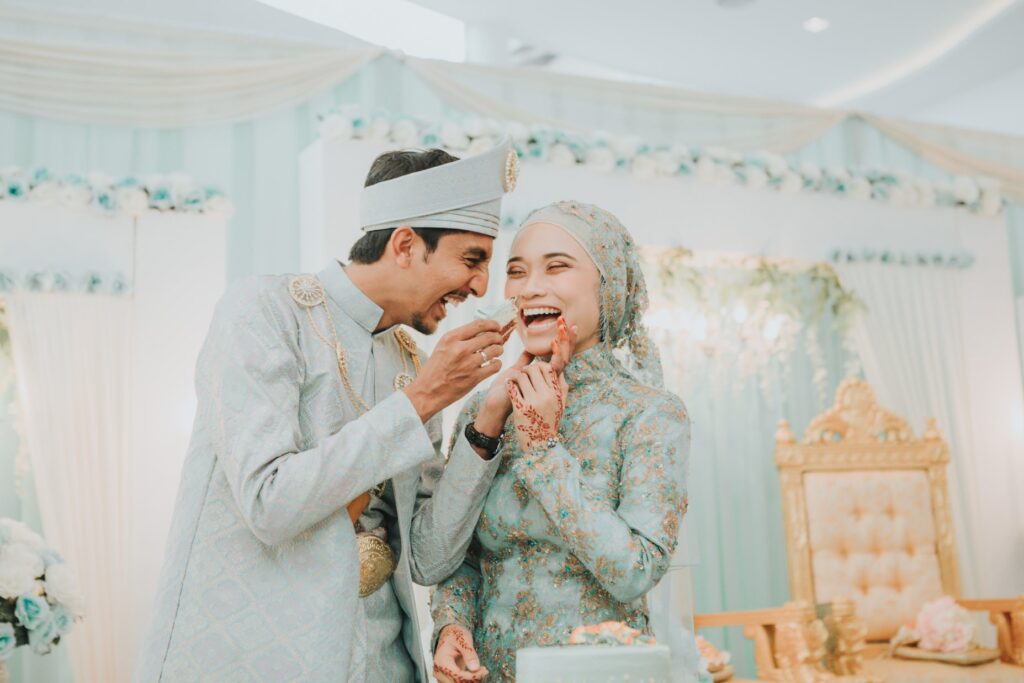
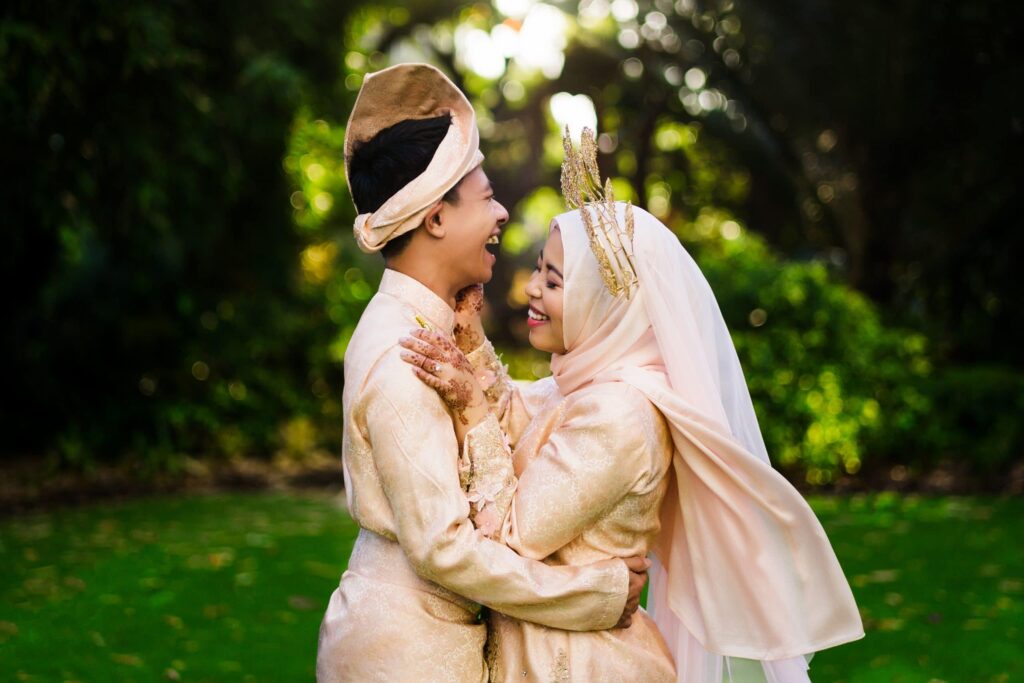
In Malaysia, the Tidong community observes a wedding tradition that tests the couple’s endurance and commitment in a rather unusual way. After their wedding, the bride and groom are not allowed to use the bathroom or leave their house for three days and nights. During this time, their family members closely monitor them to ensure compliance. They are provided with minimal food and water to sustain them. This ritual is rooted in the belief that it ensures good luck, and the prevention of misfortunes such as infidelity, divorce, or even the untimely death of their future children.
France: The toilet bowl challenge
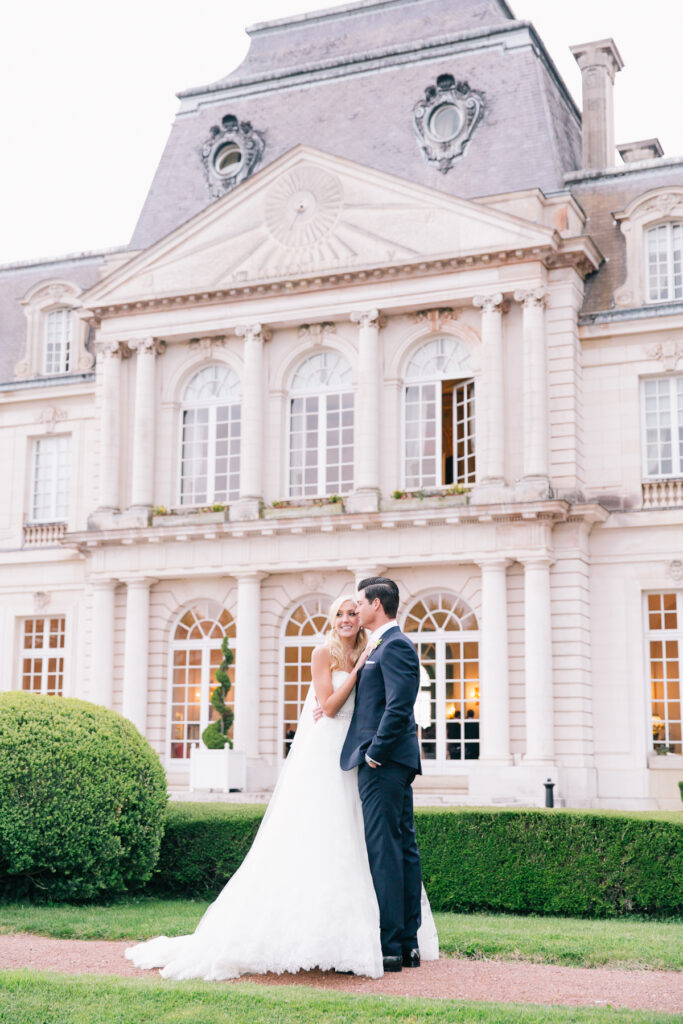
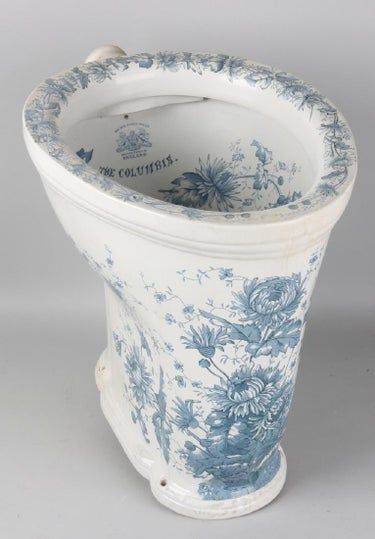
French weddings are known for their playful and often peculiar traditions, but the “toilet bowl challenge” might be the most eyebrow-raising of all. After the wedding festivities, guests collect leftovers from the feast—once considered delectable—and mix them with alcohol and other ingredients of their choice in a toilet bowl (or a makeshift one for modern ceremonies). The newlyweds are then required to drink this unappealing concoction to prepare them for the challenges of their upcoming married life and ensure they have the strength for their wedding night.
Czechoslovakia: Blessings for fertility
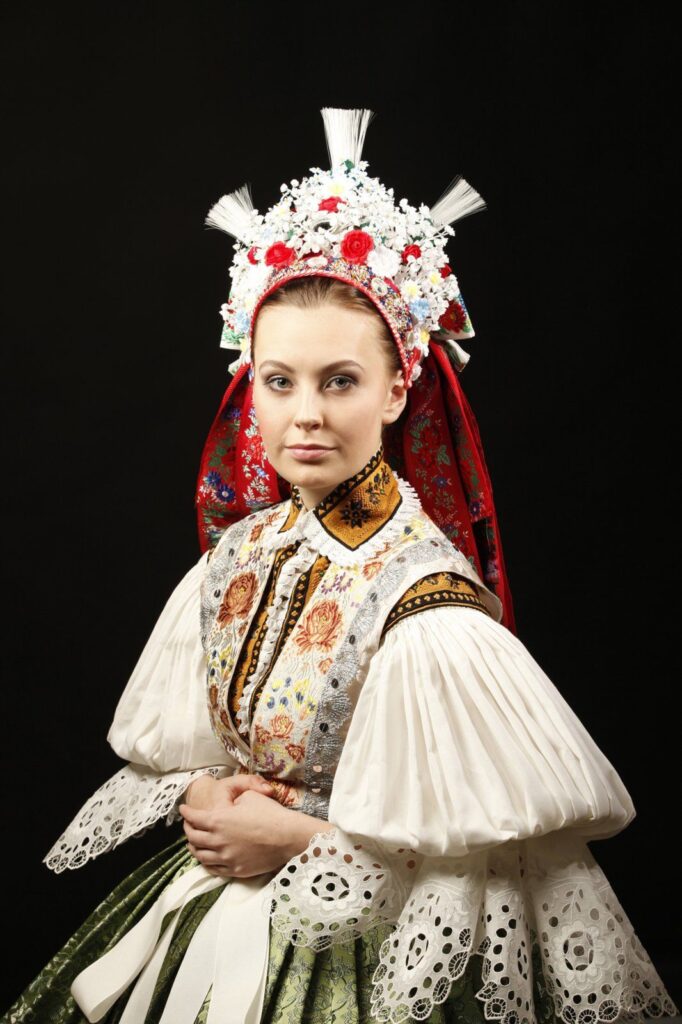
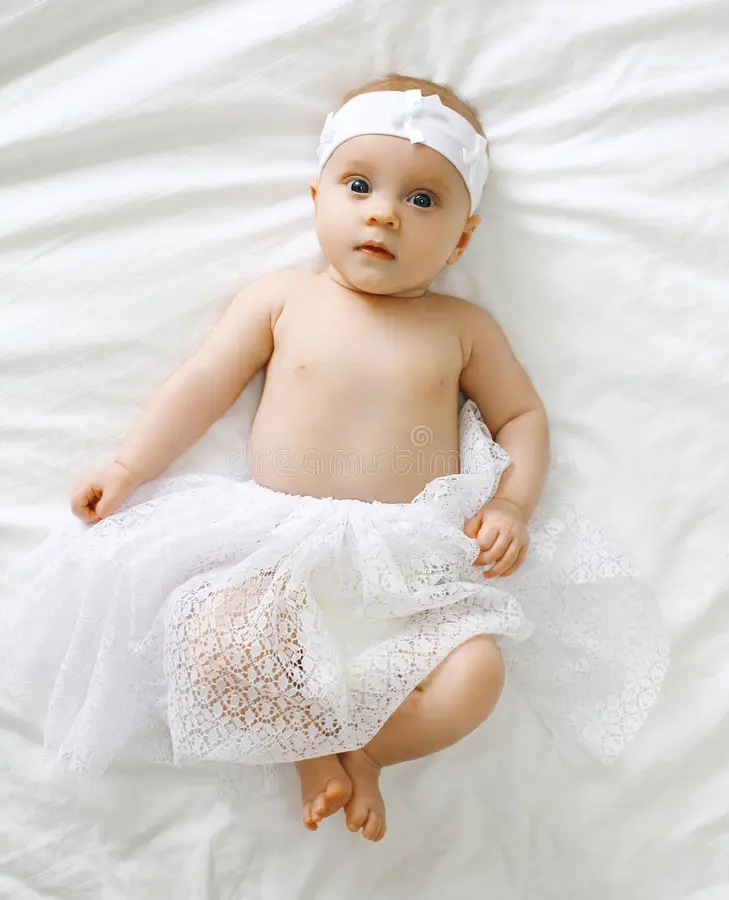
In Czechoslovakia, weddings are steeped in traditions that focus on fertility and the couple’s future family. Before the wedding ceremony, an infant is placed on the couple’s bed as a symbol of fertility and a blessing for their married life. The presence of the child is believed to encourage the couple to embrace parenthood as the next chapter of their union. After the wedding, guests shower the newlyweds with peas, rice, or lentils, further symbolising fertility and prosperity. This charming yet fertility-focused tradition reflects the community’s deep desire to see the couple thrive and create a family, underscoring the cultural importance of children in marriage.
Wedding traditions are as diverse as the cultures they represent, ranging from lighthearted games to deeply symbolic acts. These rituals, though unusual to outsiders, hold profound meaning for those who participate in them. They reflect the values, beliefs, and histories of their respective societies, adding layers of depth and personality to the universal act of marriage. While the specifics may vary, the essence of these customs lies in their ability to unite communities, honour shared heritage, and bless couples as they venture on their journey together. By embracing these traditions, we celebrate the beauty of diversity and the enduring power of love in its many forms.



